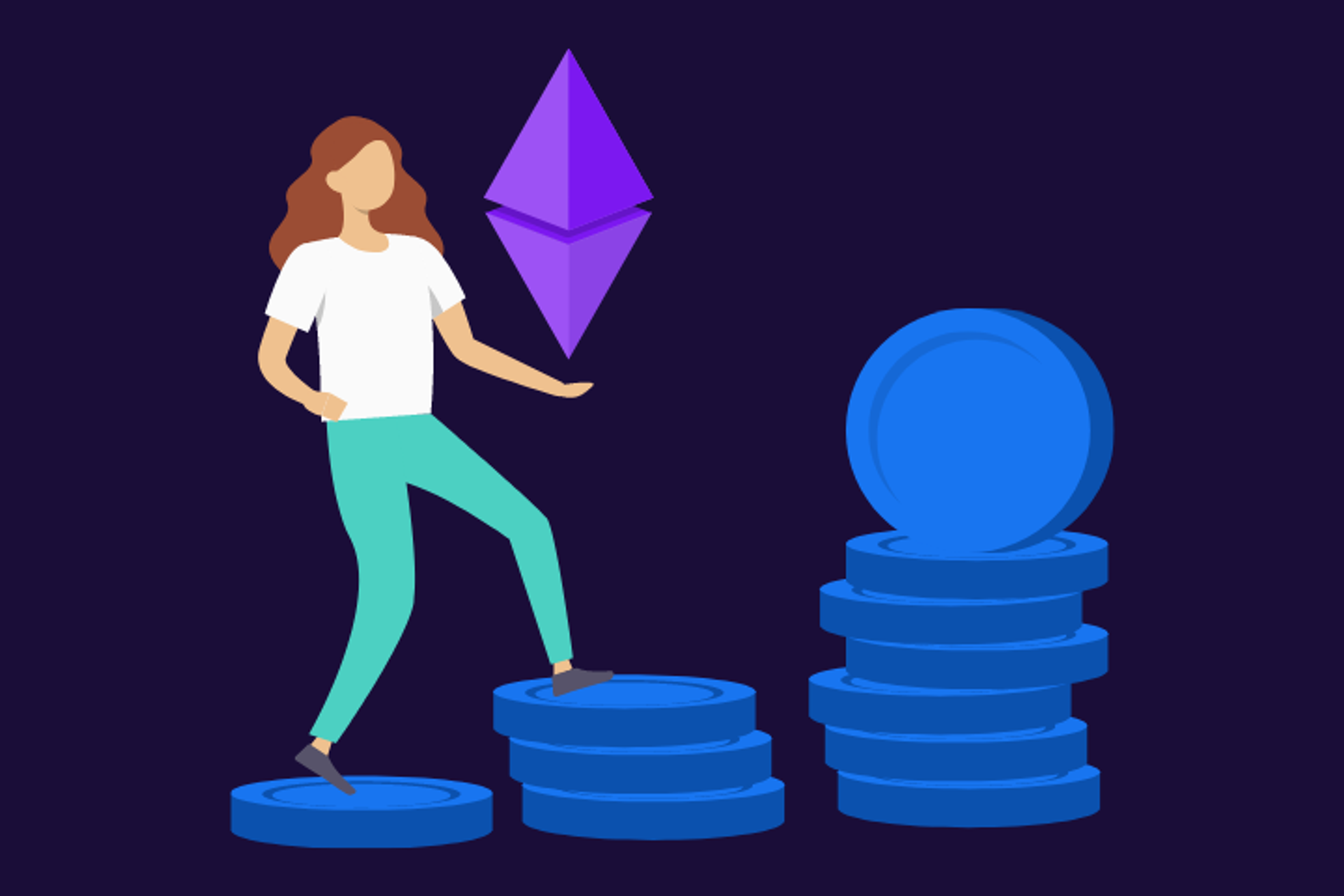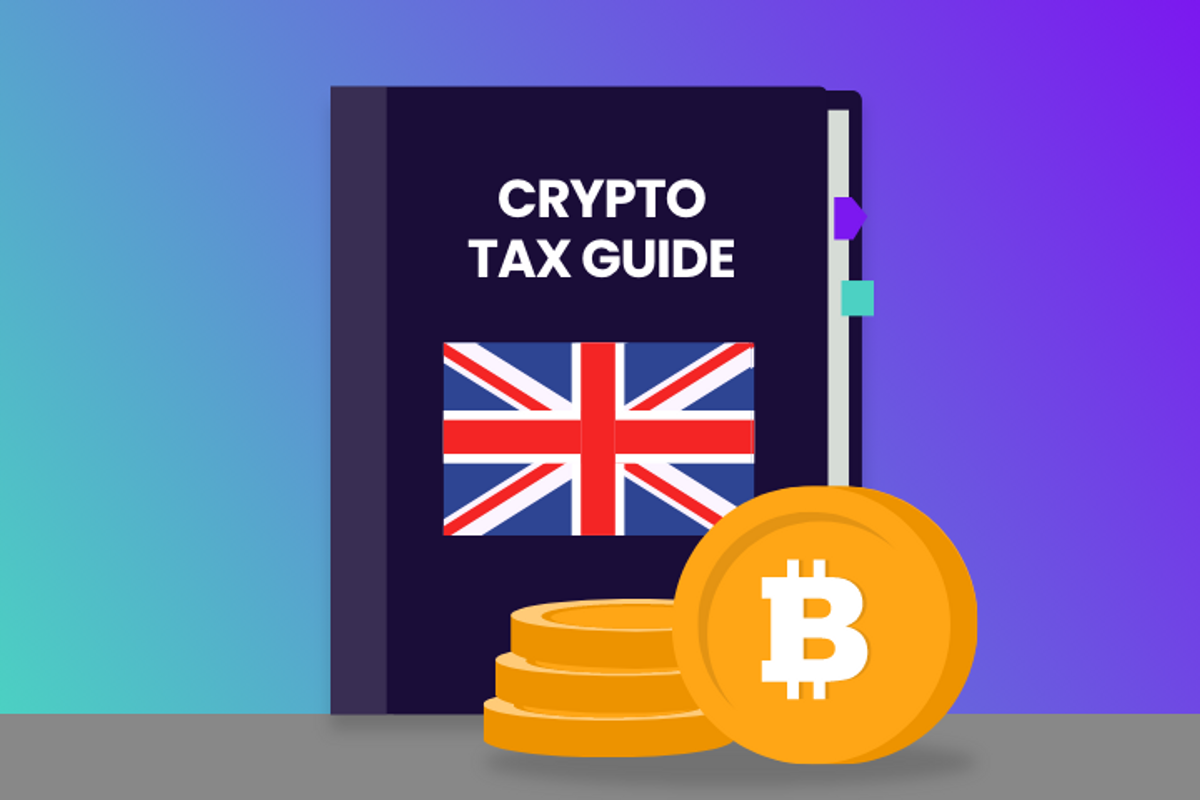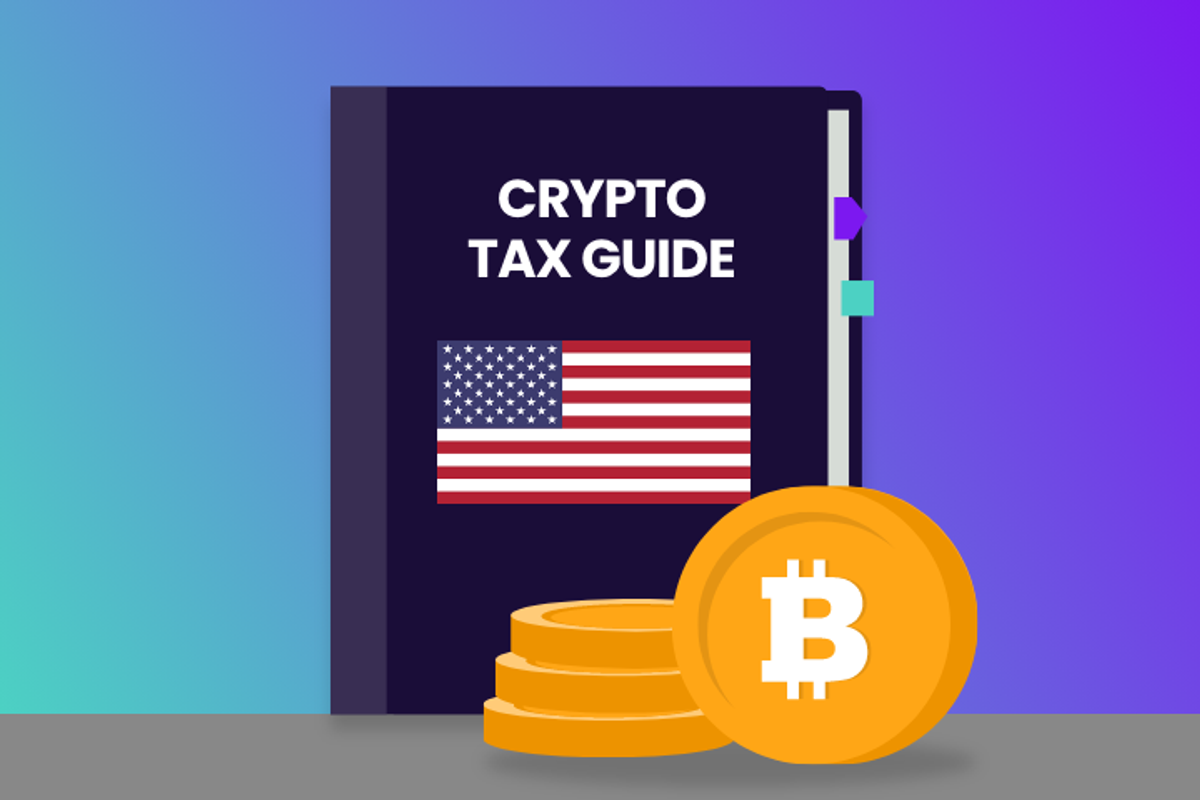
Staking is when you lock up crypto to support a network and earn rewards. It's on the rise in crypto because it's an accessible way for investors of all skill levels to earn passive income. This guide highlights the best crypto staking platforms and will be updated annually. Although it’s easy to stake, taxes can be tricky. Recap simplifies your crypto tax tracking: check our crypto tax guide and crypto tax calculator for help staying compliant.
What is staking?
Crypto staking involves locking up your cryptocurrency to validate transactions on a specific blockchain and earn rewards in return. Depending on the staking platform, the process varies, but essentially, by staking your crypto, you contribute to the network's security and integrity while potentially earning passive income.
How does liquid staking work?
Liquid staking is a solution for when you want to stake your crypto but still need access to it. Instead of locking up crypto for a fixed period, you stake your asset through decentralised protocols and receive tokens representing your stake in return. These tokens can appreciate in value and can also be used within various DeFi protocols to compound interest and maintain liquidity.
How to choose the best crypto staking platform
When choosing the best crypto staking platform, it’s essential to understand the differences between on-chain and off-chain staking and which factors are the most important to you.
- On-chain staking: You stake tokens directly on the blockchain by locking up your tokens in a wallet. It is decentralised and more secure, but can be complex, you may need to run a node, so is often preferred by more experienced users who are interested in tech and privacy.
- Off-chain staking: you stake via a middleman like an exchange or broker, making it more user friendly and easier for newbs because you don’t have to handle the tech. Because they manage your tokens there are risks to be aware of and this change in ownership may impact your tax liability in some tax jurisdictions.
Let’s look at some of these considerations in more detail.
Security measures and risk
Staking comes with risks and it's hard to tell which platforms are safest. If you are prepared to rely on a third party, there are some key features to look out for when choosing a centralised (off-chain) staking platform. Larger platforms offering custodial staking with insurance or transparent reserves tend to be safer. Insurance can cover losses from hacks or theft and clear reserves mean the platform has enough assets to cover its liabilities. You can usually find this information on their website, in sections like "Security" or "About Us." Terms and conditions might also detail their security measures and insurance coverage. Always read carefully and research the platform to ensure your assets are safe.
On-chain staking is safer, because it’s direct on the blockchain, which is transparent and tamper-proof by nature. It operates with self custody meaning you are in control of your keys and assets. You just need to maintain good wallet security to prevent unauthorised access.
User interface and experience
The importance of UI and experience is another important factor to consider. On-chain staking can be less user-friendly, requiring a deeper understanding of blockchain tech. Users may need to interact directly with blockchain tools and understand wallet management, which can be daunting for newcomers. In contrast, centralised platforms with intuitive design guide users through the staking process making it accessible for those with less technical knowledge. They normally have clear instructions, easy navigation, and accessible support. Such features lower the barrier to entry, allowing even beginners to confidently participate in staking.
Supported cryptocurrencies
The range of supported cryptocurrencies is also important when choosing a crypto staking platform. While Ethereum might spring to mind for many, there's a vast array of popular and emerging coins, each with unique potential and different rewards on different platforms. Some tokens may not follow a PoS mechanism but can still be staked through third-party services or DeFi protocols.
Rate of return
The rate of return can vary significantly depending on the cryptocurrency being staked and staking platform. While established cryptocurrencies like Ethereum and Cardano tend to offer lower but relatively stable returns, emerging projects and lesser-known coins could provide higher yields but come with increased volatility and uncertainty.
When researching how much you can earn from staking crypto, don't just focus on the big numbers. Sure, some platforms advertise eye-popping APRs, but there's more to it. Think about whether you're staking directly on the blockchain or using a third-party service. On-chain might be safer, but it could mean lower returns because of how the network works and fees. Off-chain options might promise higher rewards, but they often come with extra risks. Try to find a balance between potential rewards and keeping your investment safe.
Fee structures
Understanding fee structures is crucial when choosing a crypto staking platform because they directly affect your returns. First, consider the fees for staking and un-staking - some platforms take a percentage, while others have fixed fees. Also, keep an eye on reward fees, which can eat into your earnings. Comparing fee structures among platforms is essential to maximize your returns. Some may offer competitive rates to attract users, while others might have higher fees but provide extra features. Evaluate fee structures across different platforms and decide what features are important to you to identify the most cost-effective option that aligns with your investment goals.
Tax consequences
When choosing a crypto staking platform, remember that tax implications can vary widely, not just based on your tax jurisdiction's rules but also due to the platform's mechanisms. How assets are staked, when rewards are received and the concept of beneficial ownership can significantly impact your tax liability. Staking activity can be subject to income tax and capital gains tax - it’s important to understand this so you can manage your tax obligations. Check out our crypto tax guides for more information.
Local regulations and restricted countries
As with all cryptocurrency activity, before diving in it’s important to thoroughly research the staking platform’s availability in your country. Because of issues with regulation many platforms have withdrawn staking products to some users - so be aware of potential legal issues to ensure compliance. Before committing your assets, make sure the staking platform offers full support for your jurisdiction.
Community and support
When staking, having a lively community and solid support can make all the difference. An active community means you're not in it alone—you can bounce ideas off fellow stakers, share tips, and stay updated on the latest trends. Plus, a platform with robust support means you can get help when you need it most. Whether it's a quick question or a more serious issue, knowing there's reliable support at your fingertips can give you peace of mind. So, before you commit to a platform, take a look at their community channels and reach out to support to see how responsive they are. A strong community and reliable support can turn a good staking experience into a great one.
The top crypto staking platforms in 2024
We have curated a list of the top crypto staking platforms based on security, user experience, supported tokens, return and fees. Because of growing regulation, you may find some staking platforms are not available in your country. Ensure you fully understand the rules before committing your assets to any staking platform.
Coinbase
Coinbase offers a user-friendly staking platform for on-chain assets with a large range of popular assets like Ethereum, Cardano, Tezos and Solana. With low minimum staking amounts and flexible staking periods, Coinbase is highly accessible and a great option for beginners. Rewards are fairly low and their fees can be high but you can unstake at any time and your crypto is always yours. As a leading crypto exchange, Coinbase is heavily regulated and prioritises security so staking on the platform is safe.
| Security | Heavily regulated. 2-factor authentication |
|---|---|
| User experience | Beginner-friendly accessible platform. Lots of educational resources. |
| Supported tokens | ATOM, XTZ, ETH, DOT, SOL, USDC, MATIC, ADA |
| Rewards | 2% to 9.27% APY. Varies by token. |
| Fees | No fee to stake or unstake. Coinbase commission of up to 35% on rewards |
| Minimum/ maximum staking amounts | Depends on token. |
| Lock in period | Varies by protocol. |
| Ownership | You retain full ownership. You may be affected by lockup period. |
| Unstaking | Varies by token. |
| Payout frequency | Varies by token. |
KuCoin
KuCoin, another leading exchange, provides users with both flexible and fixed term staking options. With its flexible term products, users can redeem funds at any time, while fixed term products automatically do so upon maturity, often yielding higher returns. Through staking, users can effortlessly earn passive income and even double rewards with regular staking profits. KuCoin Earn offers access to approximately 50 digital assets, enabling users to diversify their staking portfolio and potentially boost returns while mitigating risk.
| Security | Not regulated by the FCA but claims to adhere to regulations. Advanced encryption. Secure storage |
|---|---|
| User experience | Beginner-friendly accessible platform. Good resources. |
| Supported tokens | Around 50 assets available to stake including HYDRA, APE, ETH, ATOM, DOT, AVAX, SOL, MATIC, XTZ, BNB. |
| Rewards | Return of between 1.5% to 25% depending on token |
| Minimum/ maximum staking amounts | Depends on token. |
| Redemption period | Typically set by blockchain. |
| Payout frequency | You retain full ownership. You may be affected by lockup period. |
| Unstaking | Varies by token. |
| Payout frequency | Daily. |
Kraken
Top rated crypto exchange, Kraken is known as one of the best centralised crypto staking platforms with competitive returns and quick payouts. Users have access to on-chain staking with both flexible and bonded (fixed) staking products in just 3 clicks.
| Security | Heavily regulated. Registered with the Financial Conduct Authority (UK). Registered as money service business (US) |
|---|---|
| User experience | More suitable for advanced investors. Highly customisable |
| Supported tokens | Around 20 assets available to stake including ADA, ATOM, ETH, DOT, MATIC, SOL, XTZ. |
| Rewards | Return of between 1% - 21% APR depending on token. |
| Fees | No transaction fees for staking or un-staking. Kraken takes a commission which varies depending on asset and amount staked. |
| Lock in period | Varies by protocol. |
| Unstaking | Instant when using flexible terms. |
| Payout frequency | Twice per week. |
Bitstamp
Bitstamp is one of the most established crypto services and offers staking to users, although this is limited to just Ethereum and Algorand currently.
| Security | Highly regulated and complies with all regulatory and AML requirements. Registered as a cryptoasset business by the FCA, UK. Customer funds held on Bitstamp are 100% backed and available for withdrawal. 95% of crypto held at Bitstamp is securely stored offline in bank-grade Class III vaults. |
|---|---|
| User experience | User friendly platform. |
| Supported tokens | Only 2 assets available to stake - Ethereum and Algorand. |
| Rewards | 3.1% APR for ETH and 1.6% APR for ALGO. |
| Fees | Commission fee of 15% on rewards |
| Lock in period | Implemented by protocol. |
| Duration period | Flexible. |
| Payout frequency | Monthly for ETH. Quarterly for ALGO. |
Gemini
Gemini is a simple and secure platform for crypto users. It is suitable for beginners and the Gemini Active Trader product provides a high performance trading platform for more experienced traders. Gemini Staking allows customers to stake Ether, Matic and Solana with no minimum staking amount, making it highly accessible - although it is not available in the UK due to regulation. They also have Staking Pro, a service designed for advanced customers looking for greater control and more on-chain transparency. This is limited to ETH staking and a minimum of 32 ETH can be staked, but is available to UK customers.
| Security | Strong security and compliance. ISO 27001 and SOC 2 Type 2 certified. Registered as a Cryptoasset Business with the FCA. Regulated by the NYDFS. Majority of crypto held in offline cold storage. |
|---|---|
| User experience | Intuitive user interface simplifies the staking process. |
| Supported tokens | Gemini customers can stake Ethereum (ETH) Solana (SOL) and Matic (MATIC). |
| Rewards | Determined by the protocol. |
| Fees | Staking services fee of 15% of the rewards. |
| Lock in period | Implemented by protocol. |
| Unbonding | MATIC is around 4 days but can be up to 14 days for ETH. |
Uphold
Uphold is a well known crypto platform designed for novice and advanced crypto users. Users have access to flexibly stake around 20 tokens with rewards varying depending on the protocol.
| Security | Built with robust security. Committed to compliance. Regulated by the FCA, UK and a FinCEN Registered MSB in the United States. |
|---|---|
| User experience | Easy to use platform suitable for beginners and experienced investors. |
| Supported tokens | Around 20 tokens including ADA, SOL, ATOM, XTZ, DOT and ETH. |
| Rewards | Vary depending on the token. |
| Fees | Uphold earns a commission of 3-34% depending on the staked asset. |
| Unstaking | Depends on the protocol. |
| Payout frequency | When rewards are received from network |
Binance
Binance is the world’s largest exchange based on trading volume and is known as one of the best and most accessible staking platforms. It’s DeFi staking feature supports staking of up to 14 tokens, with a mix of flexible and fixed lock-in periods. Minimum stakes and returns vary depending on the token. Binance also offers ETH 2.0 staking where users receive daily rewards paid in BETH which can be redeemed for ETH.
| Security | Considered one of the safest exchanges with two factor authentication and cold storage. However, it has experienced security breaches and frequently faces regulatory challenges. |
|---|---|
| User experience | Intuitive and user-friendly platform. Lots of educational resources |
| Supported tokens | Up to 14 assets can be staked including… BNB, Cardano (ADA), Cosmos (ATOM), Ethereum (ETH), Fetch.ai (FET), Near Protocol (NEAR), Polkadot (DOT), Polygon (MATIC), Solana (SOL), Tezos (XTZ). |
| Rewards | Up to 6% APR depending on the token. |
| Fees | 25 to 35% service fee. |
| Unstaking | Varies by protocol - from days to weeks. |
| Payout frequency | Depends on token - daily to end of staking term. |
Lido
Lido is a non-custodial liquid staking solution built on Ethereum. Users can stake their Ethereum and Matic and receive derivatives which can be used across DeFi protocols. Lido prides itself on its approach to security and transparency but there are still potential risks like vulnerability in the smart contract, technical risks and price of stTokens. It's a popular option for investors who are looking for accessible alternatives to staking via an exchange.
| Security | Open-source development work & continuous review of all code. Undergoes comprehensive security audits. Community governance. |
|---|---|
| User experience | Simple to use platform with an engaged community |
| Supported tokens | Ethereum (ETH) and Polygon (MATIC) |
| Rewards | Received within 24 hrs of deposit and daily for MATIC. Reward rate around ETH 3.2% APY and MATIC 4.2% APY. |
| Fees | 10% fee on staking rewards |
Rocket Pool
Rocket Pool is the oldest and only decentralised staking protocol for Ethereum with staking available both with and without operating a node. Users can stake as little as 0.01ETH, and are provided liquidity through rETH tokens. Those who want to earn more rewards can stake a minimum of 8 ETH and become a Rocket Pool node operator. Although it’s a leading Ethereum staking protocol, Rocket Pool shares the same risks as others - the smart contract is vulnerable to bugs, malicious actors and market volatility could affect the value of rETH.
| Security | Extensively audited by experienced ETH auditors - Sigma Prime, Consensys Diligence and Trail of Bits. |
|---|---|
| User experience | Easy to use platform. Active community. |
| Supported tokens | Ethereum (ETH) |
| Rewards | 2.67- 6.49% APR |
| Fees | 0% protocol fee 14% node operator fee of rewards |
| Lock up period | No minimum |
To wrap it up, staking in crypto is an effective way to earn rewards and support the network, but picking the right platform for your needs matters. Factors such as fees, supported cryptocurrencies, community support, tax implications, and platform accessibility should be carefully weighed based on your preferences.
Get started with Recap today
With the challenging tax landscape for crypto and in particular everchanging guidance for staking, maintaining compliance is tricky. Recap's crypto tax tracking software offers a reliable solution to streamline the process of recording staking rewards. Sign up today to simplify your tax reporting and confidently manage your staking rewards while focusing on your financial goals.



